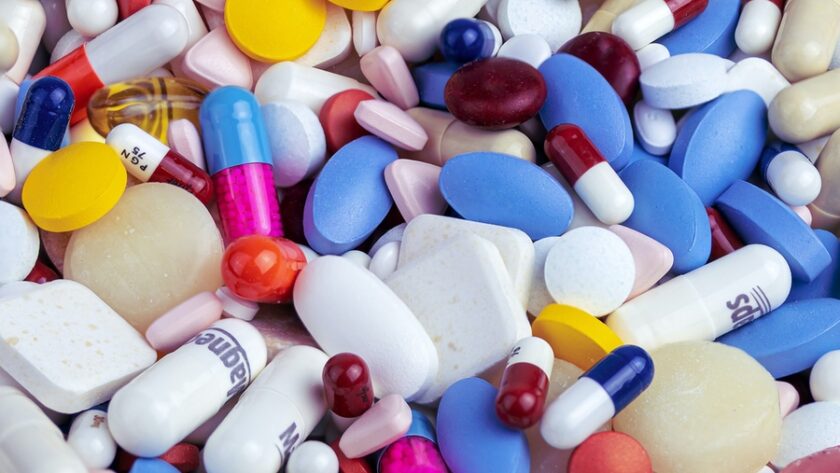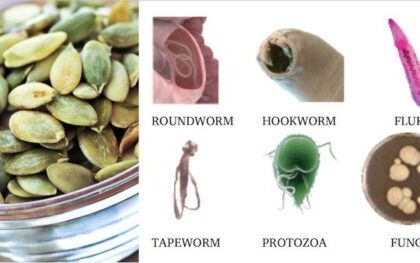It’s no secret that any pharmaceutical drug is going to cause ‘side’ effects that aren’t necessarily desirable. If you watch any pharmaceutical commercial on tv you’ll see an ad for a drug with a man and woman frolicking through a field for the first portion of the commercial, but the rest of the commercial is full of ‘side effects’ that the drug causes. Following this advert you’ll hear “ask your doctor if this drug is right for you” – but why would you?
Most drugs are going to cause long term health issues. Any pharmaceutical product has health concerns downstream as a result. It doesn’t matter what the drug is for, there will be negative downstream effects.
This is because pharmaceutical products are synthesized chemicals. The body recognizes these chemicals as foreign so it utilizes resources such as minerals, microbes, electrons and other aspects to delay or handle the attack.
While pharmaceutical products may do the intended job, they may also create more issues in the body long term. I have seen the negative effects of pharmaceutical medicine firsthand. My older brother was born with a birth defect from accutane, which my mother took many years before her pregnancy. She had my older brother years after the window was ‘safe’ to have a child, yet my brother was still born with a birth defect.
What Negative Effects Do Pharmaceuticals Cause?
Pharmaceutical drugs cause a variety of downstream effects that are worth being aware of and mitigating if you are on a drug for any purpose. There are certain systems of the body that take a hit when on a synthetic drug. If you can utilize a natural herb or remedy before going on a pharmaceutical product, this is most ideal. If you are on a drug however, it is valuable to know the harmful effects that these drugs can cause.
- Side Effects: Many pharmaceutical drugs and antibiotics can cause side effects, which are unintended and often undesirable reactions. These side effects can range from mild to severe and vary depending on the specific drug. Common side effects include nausea, vomiting, diarrhea, dizziness, drowsiness, allergic reactions, and changes in appetite or mood. In some cases, severe side effects can occur, such as organ damage or life-threatening allergic reactions.
- Antibiotic Resistance: Overuse or misuse of antibiotics can lead to the development of antibiotic resistance. Antibiotic resistance occurs when bacteria mutate or acquire genes that make them resistant to the drugs intended to kill them. This means that previously effective antibiotics may become less or completely ineffective in treating certain infections, leading to prolonged illnesses, increased healthcare costs, and in some cases, life-threatening situations. Antibiotic resistance is a global health concern that requires responsible and judicious use of antibiotics.
- Disruption of Microbiome: The human body harbors a diverse community of microorganisms, collectively known as the microbiome, which plays a crucial role in maintaining overall health. Some pharmaceutical drugs, particularly antibiotics, can disrupt the balance of the microbiome by killing not only harmful bacteria but also beneficial ones. This disruption can lead to an overgrowth of certain harmful bacteria, such as Clostridium difficile, causing infections and other health problems. Additionally, an imbalanced microbiome has been linked to various conditions, including digestive disorders, immune system dysfunction, and even mental health issues.
- Mineral Depletion: Pharmaceutical drugs have the potential to disrupt the balance of essential minerals in the body, such as magnesium, potassium, calcium, and sodium. The mechanisms by which drugs deplete these minerals can vary. Some medications may increase the excretion of minerals through the kidneys, leading to reduced levels in the body. Others can interfere with the absorption of minerals in the digestive system or disrupt the body’s regulatory processes. These drug-induced depletions can have significant implications for health, as magnesium, potassium, calcium, and sodium play vital roles in numerous bodily functions. Magnesium is involved in energy production and muscle function, potassium is crucial for nerve transmission and maintaining proper heart rhythm, calcium is essential for bone health and nerve function, and sodium is important for fluid balance and nerve signaling. Healthcare professionals should remain vigilant about these potential interactions, monitoring patients closely and addressing any deficiencies to mitigate adverse health effects.
- Free Radical Damage: Pharmaceutical drugs can contribute to free radical damage and oxidative stress within the body. When drugs are metabolized or broken down in the body, they can produce harmful byproducts called free radicals. These free radicals are highly reactive molecules that can cause damage to cells, proteins, and DNA. Additionally, certain drugs can disrupt the body’s antioxidant defense system, which normally neutralizes free radicals. This imbalance between the production of free radicals and the body’s ability to counteract them leads to oxidative stress. Oxidative stress is a condition in which the body experiences an excess of free radicals, resulting in cellular damage and inflammation. Prolonged exposure to oxidative stress has been associated with various health problems, including cardiovascular disease, neurodegenerative disorders, and cancer. It is important for healthcare professionals to consider the potential impact of pharmaceutical drugs on oxidative stress and take measures to mitigate its effects, such as prescribing antioxidants or closely monitoring patients for signs of oxidative damage.
How To Protect & Mitigate Pharmaceutical Damage:
With the damaging effects of pharmaceutical drugs in mind it is important to find ways to mitigage the damage for each of these areas.
Here are recommendations for each of these key areas:
- Activated Charcoal: Activated charcoal is a substance known for its valuable properties when taken alongside pharmaceutical drugs. It is a form of carbon that has been specially treated to increase its surface area and porosity. Activated charcoal is commonly used in emergency medicine to treat cases of drug overdose or poisoning. When ingested, it binds to certain medications in the gastrointestinal tract, preventing their absorption into the bloodstream. This can help reduce the amount of drug that enters systemic circulation, potentially mitigating the severity of toxicity. Activated charcoal is particularly effective for adsorbing drugs that have not yet been fully absorbed or those with a high affinity for charcoal. Charcoal helps the excess medication leave the body without sitting and causing issues. You can get powdered activated charcoal for 15% off from Schizandu naturals by clicking here.
- Take Bacteria Killing Herbs: Cedar and oreganon have been shown to specifically target and kill antibiotic resistant bacteria. Other herbs such as una de gato (cat’s claw), sangre de grado (dragon’s blood), neem, mint, clove, garlic, and camu camu are natural substances known for their potential in fighting antibiotic-resistant bacteria and supporting overall microbial balance. These ingredients possess antimicrobial properties that can inhibit the growth of bacteria, including antibiotic-resistant strains. They contain bioactive compounds such as essential oils, flavonoids, and phenols, which exhibit broad-spectrum antibacterial activity. Moreover, these natural remedies have been traditionally used to restore and maintain a healthy microbiome. By targeting harmful bacteria while preserving beneficial microorganisms, they help in promoting a balanced microbial environment within the body. Radiate 21 is a great formula for killing antibiotic resistant bacteria. Visit Radiate21.com by clicking here to learn more.
- Restore The Microbiome: Fermented foods play a valuable role in restoring and maintaining a healthy microbiome. These foods undergo a fermentation process, in which beneficial bacteria or yeasts convert sugars and carbohydrates into organic acids, enzymes, and probiotics. By consuming fermented foods, we introduce these beneficial microbes into our gut, promoting a diverse and balanced microbiome. Examples of fermented foods include yogurt, kefir, sauerkraut, kimchi, miso, tempeh, and kombucha. These foods are rich in probiotics, which are live bacteria or yeasts that confer health benefits when consumed. Probiotics can help improve digestion, enhance nutrient absorption, support immune function, and even contribute to mental well-being. To restore the microbiome, it is beneficial to include a variety of fermented foods in your diet. Additionally, incorporating fermented beverages like kefir or kombucha can further enhance the beneficial bacteria in the gut. You can learn how to ferment your own food and drinks at FermentationMethod.com. Radiate 21 is also a strong formula for restoring the microbiome by killing bad bacteria and restoring healthy bacteria.
- Restore Minerals: Replenishing minerals is crucial when taking a pharmaceutical drug due to the potential for drug-induced mineral depletion. Many medications can interfere with the absorption, utilization, or retention of essential minerals in the body. These minerals play vital roles in various physiological processes, such as nerve function, muscle contraction, bone health, and maintaining proper fluid balance. When mineral levels become depleted, it can lead to imbalances and deficiencies, which may manifest as symptoms or negatively impact overall health. Therefore, it is important to replenish minerals through dietary sources or supplements while taking pharmaceutical drugs to help maintain optimal mineral levels and support the body’s normal functions. Healthcare professionals may recommend specific mineral supplements or dietary adjustments based on individual needs and the specific medication being taken. I personally take and recommend Essential Electrolytes from Paleovalley. Click here to get 15% off your order.
- Boost Antioxidants: ORAC (Oxygen Radical Absorbance Capacity) antioxidants are considered valuable when taking pharmaceutical drugs to protect against free radical damage caused by the drugs. Pharmaceutical drugs, during their metabolism and breakdown, can generate free radicals, which are highly reactive molecules that can damage cells and contribute to oxidative stress. ORAC antioxidants have the ability to neutralize these free radicals, reducing their harmful effects on the body. By supplementing with ORAC antioxidants, such as vitamin C, vitamin E, resveratrol, or other plant-based antioxidants are valuable, individuals can enhance their antioxidant defense system and minimize the risk of oxidative damage caused by pharmaceutical drugs. However, the Radiate 21 formula contains four of the top 10 highest rated ORAC antioxidants in the world. No other formula contains such a high level of highly rated ORAC antioxidants, therefore, no other formula will mitigate the free radical damage of pharmaceutical drugs better than Radiate 21.
Recommendations:
Visit Radiate21.com to support your body in killing antibiotic resistant bacteria, restoring the microbiome as well as protecting the body from free radical damage caused by pharmaceutical drugs. This will cover about 60% of the damage caused by pharmaceutical drugs. Use the discount code: radiate10 to get 10% off your order.
I also recommend activated charcoal to act as a binder to pull excess drug residue out of your body, I personally use Schizandu naturals which you can get 15% off at this link by clicking here.
Electrolytes are essential also, as the body has minerals depleted form it during any pharmaceutical treatment. I recommend Essential Electrolytes by Paleovalley, which you can get for 15% off by clicking here.






